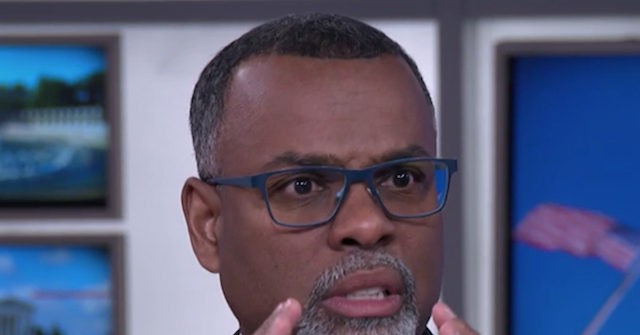On an episode of MSNBC’s “Deadline,” Princeton University professor Eddie Glaude, Jr. expressed strong criticism towards individuals who voted for President-elect Donald Trump, labeling their behavior as a “selfish indifference” that could be seen as “complicity with evil.” He highlighted the troubling moral implications behind the apathy exhibited by many Trump supporters, particularly in the context of divisive policies such as mass deportations. Host Nicolle Wallace pointed out that many of these voters seem disconnected from the repercussions of their choices, feeling no personal impact from the harsh realities faced by marginalized communities. This indifference, Glaude suggested, indicates a deeper ethical failure, as it reflects a willingness to overlook systemic injustices that harm others.
Glaude then referred to a quote attributed to Mark Twain: “History does not repeat itself, but it damn sure rhymes,” to emphasize the cyclical nature of social and political issues. He argued that the focus should not merely be on the border crisis but rather on broader, systemic problems reflected in the Trump administration’s actions. Specifically, he pointed to the controversial push against birthright citizenship and the potential undermining of the 14th Amendment as significant issues that go beyond immigration. Glaude posited that such actions are indicative of a deeper, more insidious agenda that seeks to reshape the meaning of citizenship in America, particularly for those who are not deemed to fit the traditional mold of American identity.
The discussion turned to the historical implications of the citizenship laws established following the infamous 1857 Dred Scott decision, which had explicitly denied citizenship to non-white individuals. Glaude’s remarks suggested that attempts to redefine birthright citizenship must be understood as part of a sinister pattern of exclusion that harks back to these earlier forms of systemic racism. The historical context of citizenship laws serves as an essential framework for analyzing contemporary debates about immigration and belonging. Glaude’s points underscore the significance of understanding how past injustices inform and shape present-day policies and societal attitudes.
At the heart of Glaude’s argument is the perspective that the real issue is not merely about controlling borders but rather about the ideological battle over what it means to be an American and who gets to claim that identity. He asserted that discussions surrounding border security often cloak deeper fears of demographic change, which Glaude contended amounts to a narrative of “great replacement.” This belief system, which posits that non-white populations threaten the status quo, underlies the motivations of figures like Stephen Miller and Tom Homan—key architects of Trump’s immigration policy. Glaude concluded that their actions and rhetoric are driven not by a genuine desire for secure borders but rather by a fear of losing entrenched power structures and privileges.
Glaude’s reflections invite listeners to critically examine not only the policies being implemented but also the ethical stakes involved in those policies, particularly in how they affect marginalized groups. His characterization of indifference as a form of complicity implores voters and citizens alike to take responsibility for the implications of their electoral choices. In this regard, Glaude called for a more profound engagement with issues of citizenship, race, and identity in the context of American democracy, urging a re-examination of the moral obligations that accompany one’s civic duties.
Ultimately, Glaude’s commentary serves as a powerful reminder of the critical intersection between history, policy, and ethical considerations in contemporary political discourse. His assertions encourage a necessary conversation about the responsibilities of citizenship in a pluralistic society and challenge individuals to confront the implications of their political affiliations and actions. Through his analysis, Glaude emphasizes that understanding the complexities of these issues is vital to fostering a more just and inclusive America, and he advocates for vigilance against the erosion of rights and identities that define the nation’s foundational principles.

